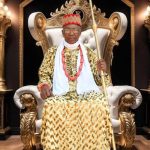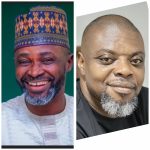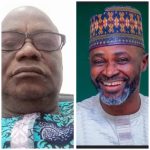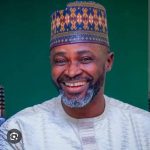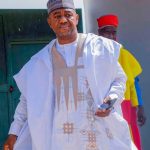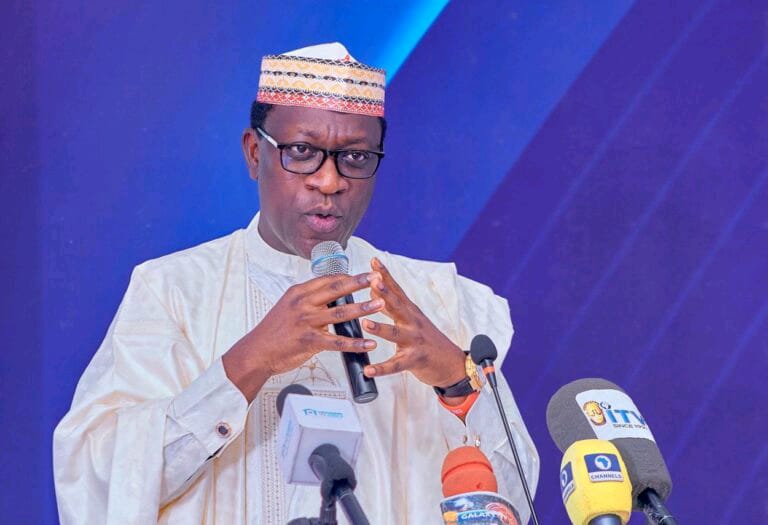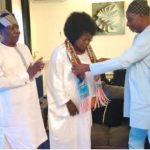The Fracture in Kano: Jibrin’s Exit and the Shifting Sands of NNPP
By Bala Salihu Dawakin Kudu
Democracy Newsline Newspaper
7th September 2025
Kano’s already volatile political landscape was thrown into fresh turmoil on Saturday as Abdulmumin Jibrin, the lawmaker representing Kiru/Bebeji Federal Constituency in the House of Representatives, formally announced his exit from the New Nigeria People’s Party (NNPP) — mere hours after a faction loyal to the party’s national leader, Senator Rabiu Musa Kwankwaso, expelled him for alleged anti-party activities and non-payment of dues.
The decision has sparked immediate national attention, sending shockwaves across the political establishment in Kano and beyond, as the NNPP finds itself once again gripped by internal discord.
In a statement exclusively obtained by Democracy Newsline Newspaper, Jibrin expressed deep disappointment with the party’s decision, describing it as “shocking and unjustified.” According to him, his recent interview in which he criticized internal party structures — delivered in both English and Hausa — was within the acceptable boundaries of political discourse and party ideology.
> “I strongly believe the contents of the interview I granted a few days ago should not warrant such a penalty because it is in tandem with the core principles of our party and movement, which allow for dissenting views,” he emphasized.
The embattled lawmaker noted that the party, ironically founded on progressive and inclusive ideals, had now become intolerant of internal criticism — a move he likened to the excesses of military regimes.
> “No invitation was extended to me to explain myself. Even under a military dictatorship, an accused is subjected to a court-martial,” Jibrin lamented.
Despite the dramatic nature of his exit, Jibrin ruled out any intention to challenge the expulsion in court, citing respect for the party and its rank and file. He called on the NNPP to let him exit peacefully.
> “I would have loved to stay in the NNPP. But for the respect I have for the party and its members, I will go in peace. I beg the party to also allow me to go in peace,” he said.
On allegations of non-payment of dues, the lawmaker maintained that he had always been willing to meet his financial obligations, but had never been served with a formal invoice.
> “There is no need to go to court. I respectfully request the party to send me the invoice, and I will promptly pay,” he stated.
However, he didn’t hide his disappointment in the treatment meted out to him by the party leadership, saying:
> “The party does not believe anybody has political value and comes short in treating people with respect. No matter what you bring on board, you are a nobody.”
Insiders say this development is the culmination of months of tension between Jibrin and the Kwankwasiyya-dominated leadership of the NNPP. His criticism of what he described as the “monolithic grip” of the Kwankwasiyya movement on the party’s decision-making process had long raised eyebrows within the party hierarchy.
A former Director-General of Bola Ahmed Tinubu’s campaign and once a key figure in the APC, Jibrin had defected to the NNPP with great fanfare in 2022, bringing with him a chunk of grassroots support in Kano. His departure now reopens speculation that he may be planning a return to the APC ahead of the 2027 general elections — a move that could further polarize the Kano electorate.
While the NNPP leadership has remained tight-lipped since the announcement, some members of the Kwankwasiyya faction privately described Jibrin’s defection as a “non-event.” A senior official, speaking on condition of anonymity, said, “We saw this coming. He never aligned with our core values and often walked his own path.”
But political analysts warn that dismissing Jibrin’s exit too lightly could be a strategic blunder.
> “Jibrin’s departure could set off a chain reaction. His loyalists and local coordinators in Kiru/Bebeji and surrounding areas command significant influence. It’s not just about a seat in the House of Reps — it’s about the optics of an imploding coalition,” said Dr. Amina Waziri, a political analyst at Bayero University, Kano.
For Jibrin, the next few weeks are expected to be crucial. While he has not yet declared his next political destination, he hinted at carefully evaluating all available options before announcing his next move.
> “I welcome all my supporters who wish to join me in my new journey… I will carefully weigh all the options before me as I decide on my next political home. So help me God,” he concluded.
Sources close to the lawmaker suggest that consultations are already underway with key figures in the APC at both state and national levels. A high-level meeting with key APC leaders is rumored to be scheduled later this month in Abuja, further fueling speculation of an imminent return.
The Bigger Picture
Jibrin’s defection is more than a personal political realignment; it is emblematic of the broader instability within the NNPP as it struggles to transition from a regional movement into a national force. The party, which made impressive inroads in the 2023 elections, now risks being undermined by internal factionalism and the dominance of the Kwankwasiyya ideology.
Whether Jibrin’s exit signals the beginning of a wider exodus remains to be seen, but what is certain is that Kano politics — once again — stands on the edge of transformation. And in that uncertain space, every defection, every silence, and every speech matters.
